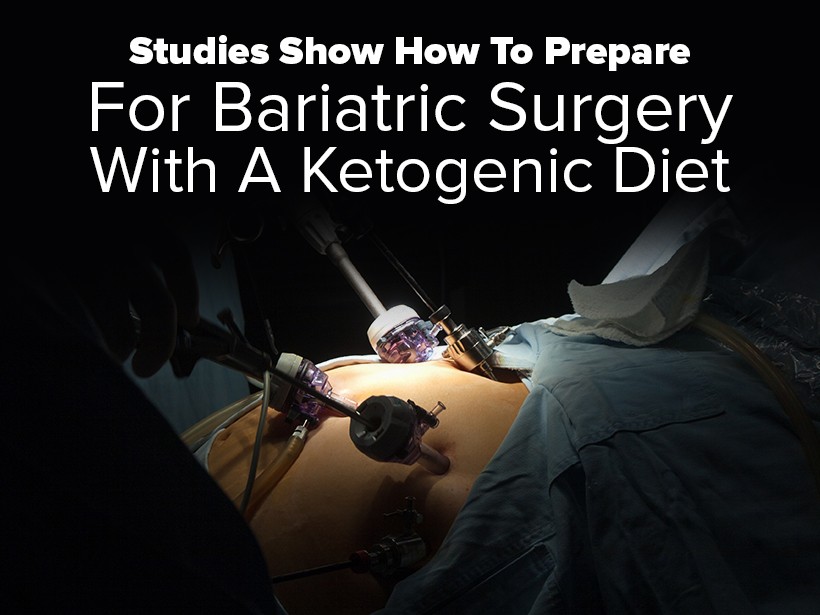What Is Bariatric Surgery?
Bariatric surgery is an extreme procedure performed typically on obese individuals in an attempt to restrict the amount of food the stomach could hold.1 You’ve probably heard of a gastric bypass before. Well, that’s an example of a bariatric surgery. There are other forms, but that’s irrelevant. Let’s focus on gastric bypass right now. In a gastric bypass, a very small stomach pouch is created by dividing the upper part of the stomach from the lower part of the stomach. The first part of the small intestine is divided, and the lower part is brought up and connected to the new small stomach pouch. The last part is to connect the top portion of the small intestine to the bottom part of the small intestine all in the hopes that the stomach acids and digestive enzymes can mix with food.
Before bariatric surgery, it is required that patients lose weight, lose volume associated with half of their left side of their liver, and fix any micronutrient deficiency they might have. If you’re still stuck on the liver part, the reason why the doctors need this to happen is that they need to be able to access a part of your body for the surgery that is located under your liver. If your liver is fatty, they could accidentally cut it because it gets in the way. As for the micronutrient deficiency part, that is basically just lack of important minerals and vitamins that your body needs (i.e. calcium or vitamin A). Researchers recently suggested a way to get all of that accomplished in one small lifestyle change: adopting a ketogenic diet.
Why Do Bariatric Surgeries Work?
A gastric bypass works in a number of ways. First, here’s the obvious one, this surgery makes your stomach smaller so you cannot eat as much as you used to. Second, because you eat less, you don’t consume as many calories. Meanwhile, your small intestine is technically shortened so that’s less space for calories and nutrients in food to be absorbed. In other words, you’re not getting as much out of what you eat. Finally, one benefit of bariatric surgery is that by rerouting the food stream, changes may occur in your gut that tell your brain that you’re not hungry. This is accomplished through the power of hormones which adjust to your new bodily environment as a result of the ketogenic diet.
How Is The Ketogenic Diet Going To Help Me Prepare?
Going back to the study, Schiavo et al. studied morbidly obese individuals who were scheduled for a bariatric surgery.2 They found that by putting them on a ketogenic diet 4 weeks before their surgeries, this reduced body weight, the volume of the left side of their livers, and was able to correct for any micronutrient deficiencies. More specifically, on average, they lost about 10 percent of their body weight, 20 percent of the left sides of their livers, and completely corrected for any micronutrient deficiencies.
What does this mean for society? Further studies are necessary, but a ketogenic diet has been illustrated to properly prepare patients for their bariatric surgeries. If you are undergoing one or know someone who is undergoing one, perhaps give the ketogenic diet a shot to prevent some of the associated negative side effects of obesity in a bariatric surgery.
NUTRITIONAL DISCLAIMER
The content on this website should not be taken as medical advice and you should ALWAYS consult with your doctor before starting any diet or exercise program. We provide nutritional data for our recipes as a courtesy to our readers. We use Total Keto Diet app software to calculate the nutrition and we remove fiber and sugar alcohols, like erythritol, from the total carbohydrate count to get to the net carb count, as they do not affect your blood glucose levels. You should independently calculate nutritional information on your own and not rely on our data. The website or content herein is not intended to cure, prevent, diagnose or treat any disease. This website shall not be liable for adverse reactions or any other outcome resulting from the use of recipes or recommendations on the Website or actions you take as a result. Any action you take is strictly at your own risk.
- Research Shows Improvement in Anorexia Nervosa Condition With Keto - August 6, 2018
- New Potential for Ketogenic Diet to Prevent Alcohol Withdrawal Syndrome - August 1, 2018
- Woman on Early Menopause Saved By Keto - July 25, 2018




